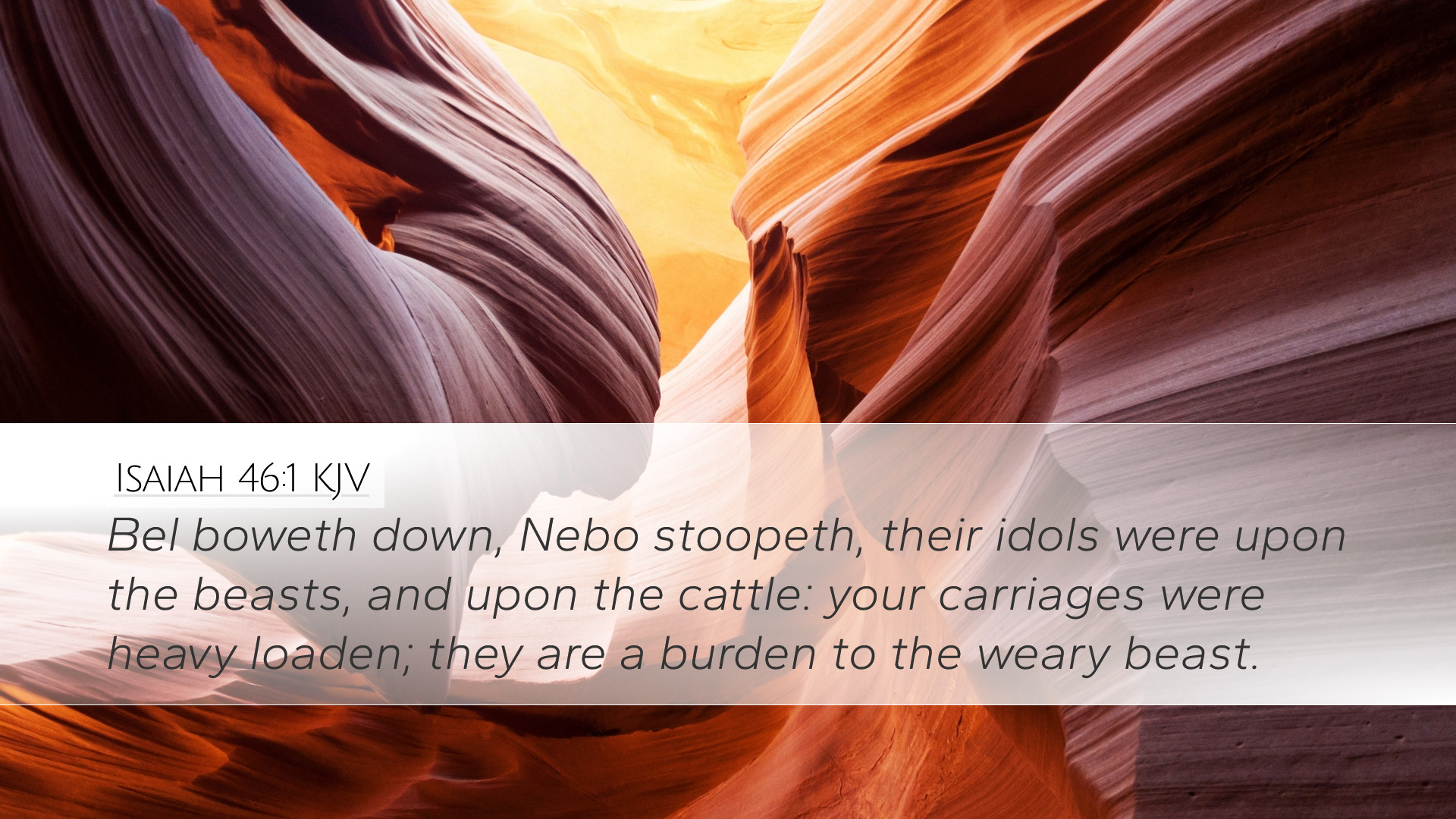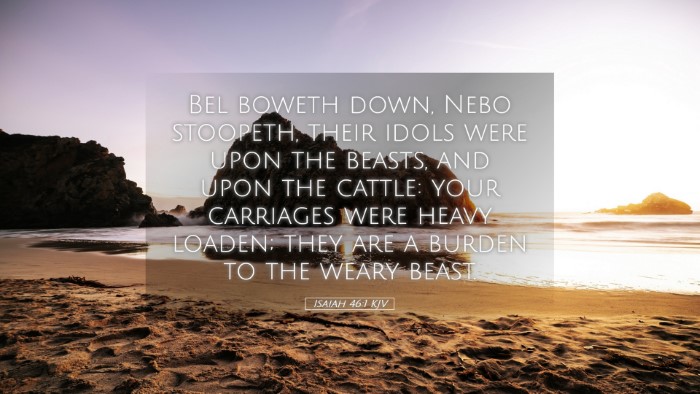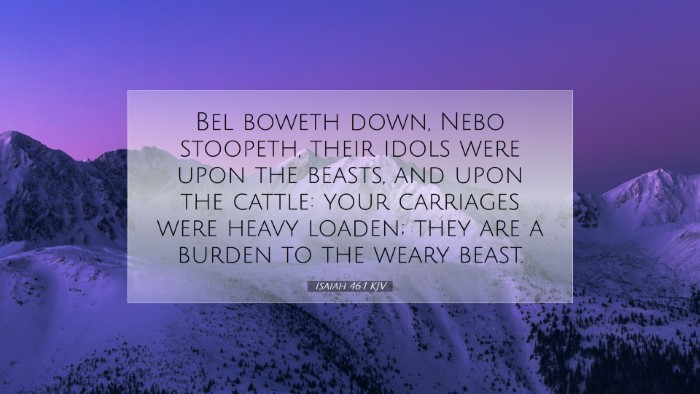Commentary on Isaiah 46:1
The verse Isaiah 46:1 reads: "Bel bows down, Nebo stoops; their idols were on the beasts and on the cattle; your carriages were heavily laden, a burden to the weary beast."
Introduction to the Commentary
This passage from Isaiah presents a stark contrast between the might of Yahweh and the impotence of false gods, particularly the deities Bel and Nebo, which were venerated in Babylon. The idols, described as burdensome, symbolize not only the futility of idolatry but also highlight the weightiness of relying on earthly powers that cannot provide true help or deliverance.
Analysis of Key Themes
-
The Burden of Idolatry
Commentators such as Matthew Henry underline the burdensome nature of carrying idols. Idols—merely the handiwork of men—end up being a heavy load for both animals and humanity. Henry notes that while nations place their trust in these lifeless forms, they fail to acknowledge the true Source of strength and support.
-
Contrast Between God and Idols
Albert Barnes emphasizes the distinction made by the prophet Isaiah. He declares that while Bel and Nebo are stooping and burdening those who worship them, Yahweh remains sovereign and unyielding. This presents a powerful rhetorical question to the Israelites as to whom they place their trust.
-
The Impotence of False Gods
Adam Clarke interprets the imagery of the idols being placed upon beasts as a powerful statement of their incapacity; these gods are too heavy to carry and provide no assistance to those who worship them. Clarke illustrates that true religion must not only uplift but must also be sustainable and life-giving, which these deities utterly fail to provide.
Theological Implications
This passage serves as a reminder of God’s sovereignty and the folly of idolatry. For theologians and pastors, it poses a crucial question regarding what modern idols might be present in today’s world. The burden of false gods might not always be represented through physical idols, but can manifest through careers, materialism, or even misguided theological constructs.
Instruction for Believers
-
Encouragement to Faith
Isaiah calls for a shift in reliance—from burdensome and impotent idols to the Almighty God who bears His people and carries them through all circumstances (Isaiah 46:4). This is not merely a historical statement; it is a prophetic call to contemporary believers to reassess their attachments.
-
Call to Action
This verse prompts examination of one’s life priorities. Are there ‘idols’ dragging down our spiritual journey? The weight of our commitments should reflect our devotion to a living God, who lifts our burdens. As Christians, the call is to embrace a faith that is active, vibrant, and liberating.
Conclusion
Isaiah 46:1 is not merely a lamentation over the idols of Babylon, but a timeless admonition against the idols within our own lives. As pastors, scholars, and students of the Word dissect this passage, they must consider the implications of idolatry and the call to a deeper reliance on God. In summarizing the insights from Matthew Henry, Albert Barnes, and Adam Clarke, the emphasis is on casting aside burdensome idols and turning toward the sustaining power of Yahweh—who alone is worthy of our trust and devotion.


